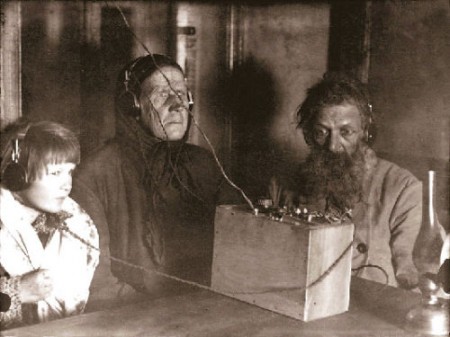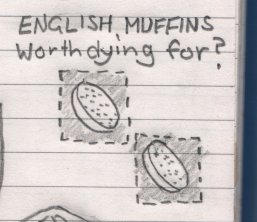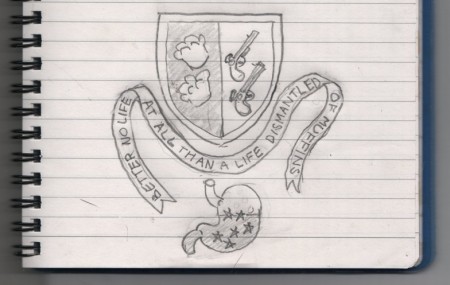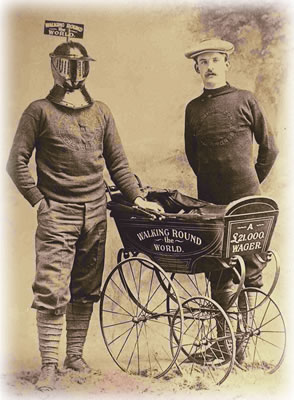Here is a simple magic trick to astonish your family and friends. When performing it, wear a sweeping black cape, and apply some mascara around your eyes. Doing so will add a dash of mystique and make you seem a little more exotic than you are already. If you have no family, and few friends, you can drag some mendicants and urchins and dogs off the street.
The trick can only be performed on a sunny day, for to begin you need to position yourself in such a way that you are standing in a shaft of sunlight beaming through your window into an otherwise gloomy room. This shaft of light will make visible motes of dust dancing in the air around you. The OED defines a mote as a particle of dust, esp. one of the innumerable minute specks seen floating in a beam of light. There are several other definitions of mote, but that is the one I am talking about. Dust, meanwhile, is given as earth or other solid matter in a minute and fine state of subdivision, so that the particles are small and light enough to be easily raised and carried in a cloud by the wind; any substance comminuted or pulverized; powder. Again, the dictionary gives other meanings of dust, including that to which anything is reduced by disintegration or decay; spec. the ‘ashes’, or mouldered remains of a dead body. Note that I am not for one minute suggesting that you should perform this astounding magic trick while engulfed in a cloud of the dust to which some close relative, say your Ma or your wan tubercular sister, has recently been reduced. If you are grieving for one not long departed, whether it be your Ma or your sister or anybody else, you should probably not be trying to do conjuring tricks, even as a way of perking yourself up. Grief is grief, and must run its course, as any number of books in the self-help section of your local library will tell you, even in this day and age. You may search fruitlessly, in your library, for a work of literature or history or science, but I am told that the shelves still heave with self-help books of all kinds, especially ones with a television tie-in.
Make sure you are standing within the shaft of sunlight erect and resolute. Do not hunch your shoulders, or slouch, and try not to topple over. If you are the sort of person who tends to topple, because you are overwhelmed by the sheer weightiness of existence, shore yourself up with something. Metal poles, artfully placed, can keep even the weediest of neurasthenics upright, at least for long enough to perform this trick.
Explain to your audience that you are going to astound and amaze them. Speak in a booming voice resonant with melodrama. If you are incapable of producing sufficiently booming and melodramatic sounds, hire a ventriloquist, who can be hidden somewhere within the gloom. Do not be disheartened if any members of your audience chuckle, or titter, or even guffaw. That will be a reflection upon them, not upon you. They will, I would wager, be chuckling or tittering or guffawing due to nerves, nerves strained to snapping point in anticipation of the eldritch forces you are about to unloose. Meet any laughter with a cackle of your own, or of your ventriloquist’s, and make it a fiendish cackle, but do not overdo it.
Now it can happen, especially in a climate such as ours, that a sudden cloud will scud across the sky and occlude the sunlight, thus rendering the motes of dust around you much less visible. If your room is sunk in particular gloom, the motes of dust may not be visible at all, and you yourself may be but a shadow in the murk, and a blurred shadow at that, to those of your audience whose ocular faculties are pitiable. It is imperative that you keep their interest until the cloud passes and the shaft of sunlight beams once again upon you. Whip out a banjo or a ukulele and launch into an Appalachian folk song, preferably one with innumerable verses but a less-than-compelling narrative, so that you can play and sing for as long as necessary, but break off as soon as the sunlight returns, even in the middle of a verse, without disappointing your audience. Some people find it difficult to play stringed instruments while wearing sweeping black capes. I have never quite understood this, but apparently it is something to do with movement of the arms being hampered by the cape. If you are affected by this problem, try tucking the cape behind your back, or pick an Appalachian folk tune that requires only desultory strumming so that you need not move your arms too much.
It may be that the cloud blocking the sunlight is a harbinger of further clouds, even of a completely overcast sky, and that a torrential downpour will begin. That would not be surprising in this land. Now, while such a turn of events may leave you crushed, and in no wise able to perform the astounding magic trick due to the lack of a shaft of sunlight beaming through your window, it has the advantage that your audience will almost certainly wish to remain indoors. True, some of them may have come armed with sou’westers and mackintoshes and galoshes, and be willing to trudge back across the fields in the pelting rain, but the likelihood is that most will stay with you, for though you and they are enshrouded in gloom, it is at least dry gloom. I assume, of course, that you do not have gaping holes in your roof through which the rain comes in and forms puddles in the dents of your floor. If your repertoire of Appalachian folk songs is scanty, and you have exhausted it before the rainfall ceases, you will need to devise some other form of entertainment for your guests. This is where the ventriloquist, if you have hired one, can be a godsend. Even if he or she has not brought their usual dummy with them, it is a simple enough matter to bundle a few rags together into a puppet. While the ventriloquist is keeping your audience spellbound, you can familiarise yourself with a few more Appalachian folk songs using speed-learning techniques picked up from a self-help book. Between the two of you, it ought to be child’s play to keep your audience entertained for hours and hours, by which time, even in this country, the sun should shine once more. On the other hand, if you have a booming and melodramatic voice, and saw no need to hire a ventriloquist, things might get a bit ugly once your store of Appalachian folk songs has dried up. This is particularly the case if among your audience you have persons with short tempers, low boredom thresholds, or those on day release from the nearby secure clinic for the criminally insane. In these circumstances, it will be well if you have borrowed from the library a self-help book such as How To Pacify Enraged Audiences Who Were Expecting A Conjuring Trick But Were Fobbed Off With Appalachian Folk Songs Followed By An Eerie Silence.
But let us be optimistic, and hope that that scudding cloud was no more than a fugitive visitor, and that the sun shines brightly once more. Cast aside your banjo or ukulele and make a couple of sweeping gestures with your cape. Ensure, as you do so, that nobody in the audience gets a glimpse of the badger concealed within its black folds. Now, ask one of their number to step into the shaft of sunlight with you and to lend you their hat. On very, very rare occasions, not a single person in the audience will be a hat-wearer, but this need not concern you. You will have taken the precautionary measure of planting a stooge with a stovepipe hat among your guests. Should nobody else volunteer, this person now leaps up, with enthusiasm yet without betraying that the pair of you are old muckers who go way, way back. You take the stovepipe hat from him, and, using sleight of hand, insert the badger into it. It is absolutely crucial that no one sees you do this. You then place the hat on your stooge’s head and tell him to return to his seat, or stool. At this point, do some flummery for a minute or two. Then, with an air of distraction, as if it is an afterthought, ask your stooge to take his hat off. To the audience’s amazement, he will do so to reveal a badger asleep upon his head! To resounding applause, go and collect the badger. Remember that you will need to pump it full of antidote fairly soon to rouse it from the coma induced by the serum with which you injected it earlier.
You can then pass your own hat around, upturned, to collect any coinage which your stunned audience wishes to give you in gratitude for so thrilling a magic trick. A proportion of any monies collected should of course be spent on a treat for the badger.




